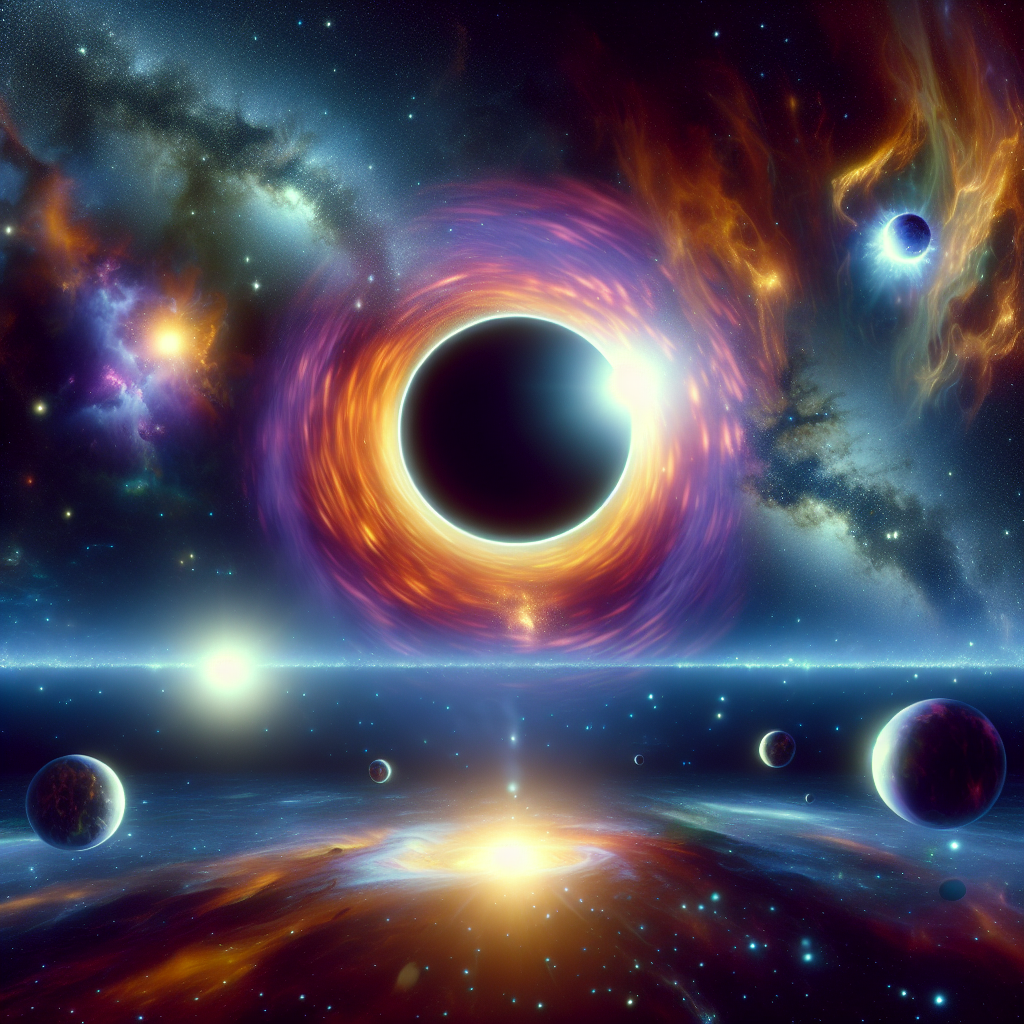Introduction to a Cosmic Phenomenon
When we think of planets, we usually picture them orbiting stars like our Sun. However, the universe is a vast and varied place, and recent scientific discussions have brought up a fascinating question: Could planets form around black holes? This inquiry not only challenges our understanding of planet formation but also expands the horizons of what might be possible in the cosmos.
Understanding Black Holes
Black holes are regions in space where the gravitational pull is so strong that nothing, not even light, can escape from them. They are formed from the remnants of massive stars that have undergone gravitational collapse. Despite their reputation as cosmic vacuum cleaners, black holes are complex and diverse objects that vary greatly in size and properties.
Theoretical Basis for Planetary Formation
The traditional view of planetary formation, known as accretion, involves dust and gas circling a star, gradually clumping together to form planets. The key ingredient here is the protoplanetary disk, a rotating circumstellar disk of dense gas and dust surrounding a young newly formed star. A similar process could theoretically occur around black holes, assuming a few critical conditions are met.
Accretion Disks Around Black Holes
Black holes often have their own accretion disks, composed of material being gravitationally pulled towards the black hole. These disks are incredibly hot and turbulent but share some characteristics with the protoplanetary disks around stars. Theoretically, if the conditions within these disks are right — particularly in terms of temperature and density — it’s possible that planets could form.
Challenges and Considerations
While the idea is intriguing, several challenges could impede planetary formation around black holes. First, the immense radiation and energetic jets from the black hole could easily disperse the materials needed for planet formation. Second, the stability of an orbit in such extreme conditions is questionable, as the intense gravitational forces could either pull a forming planet into the black hole or fling it into space.
Scientific Opinions and Research
Some astrophysicists argue that while theoretically possible, the practical likelihood of such occurrences is low. However, research in this area is still in its early stages, and as we have learned time and again, the universe often holds surprises beyond our wildest predictions.
Implications of Planetary Systems Around Black Holes
If planets do form around black holes, it would revolutionize our understanding of cosmology and planetology. These planets would likely be very different from Earth-like planets, possibly having very short years and experiencing extreme physical and chemical environments. The discovery of such planets would have profound implications for the search for life and understanding the flexibility and resilience of planetary systems.
Conclusion and Future Prospects
While the question of whether planets form around black holes remains largely theoretical, it opens up new avenues for research and speculation within the scientific community. Whether through direct observation in the future or through more refined theoretical models, the answers could unveil more about our universe’s most mysterious phenomena.


